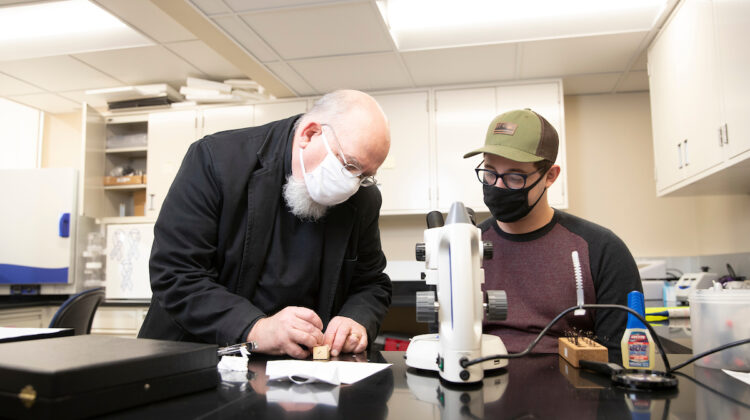What do mosquitoes and junkyards have to do with public health?
If you ask Dr. David Claborn, director of the Master of Public Health program at Missouri State University, you’ll learn the critters have more influence than you think.
Disruption of land affects inhabitants’ health
Throughout his career, Claborn has studied the public health implications of disrupted environments, which are land or populations damaged by disasters. They create unstable living conditions.
A disrupted environment can include land damaged by natural disasters, like earthquakes and hurricanes. Or by human hands, like war and terrorism.
But these visible disasters aren’t the only factors that lead to instability.
“An invasive species — like a weed, insect or disease agent — can also seriously disrupt an environment,” Claborn said. “That’s where my research comes in.”
Read more about Master of Public Health program.
Insects and infections
The Zika virus, carried by various species of mosquitoes, is a recent example of invasive insects affecting public health.
From 2016-19, Claborn led a team across Missouri collecting mosquito species. The Department of Health and Senior Services (DHSS) funded the research to calculate the risk of Zika in Missouri.
Since specific species are more likely to carry the virus, the DHSS needed a wide-scale count of the mosquitoes populating the state.
Research in the junkyard
Over four summers, Claborn and groups of students collected, identified and curated more than 50,000 mosquitoes. They stomped through wreckage yards and old tire piles to extract samples.
Those locations may seem odd, but stagnant water and swampy conditions show up in the places you don’t expect. Mosquitoes love tire piles.
“Some mosquitoes are well-adapted to artificial containers because they’re well-adapted to living with humans,” Claborn said. “A wreckage yard is perfect breeding ground.”
The team lured mosquitoes with dry ice, then took them back to the lab to identify. The process had to be quick for the volume of mosquitoes and the scope of the state.
The results
The team found no specimens of the Yellow Fever mosquito, which is the main transmitter of Zika. However, they did find two other invasive species that may have influence in the state.
The first species is the Asian Tiger mosquito. It also can carry Zika.
“This species is common, and it’s everywhere,” Claborn said.
The second species is the Asian Bush mosquito.
“Both of these species became abundant in Missouri just over the last 20 years,” he said. “These new species change our risk profile for the transmission of Zika and other viral diseases.”
The DHSS used Claborn’s data to form contingency plans. With his help, the state is prepared for a potential outbreak of Zika, or another mosquito-borne virus.



